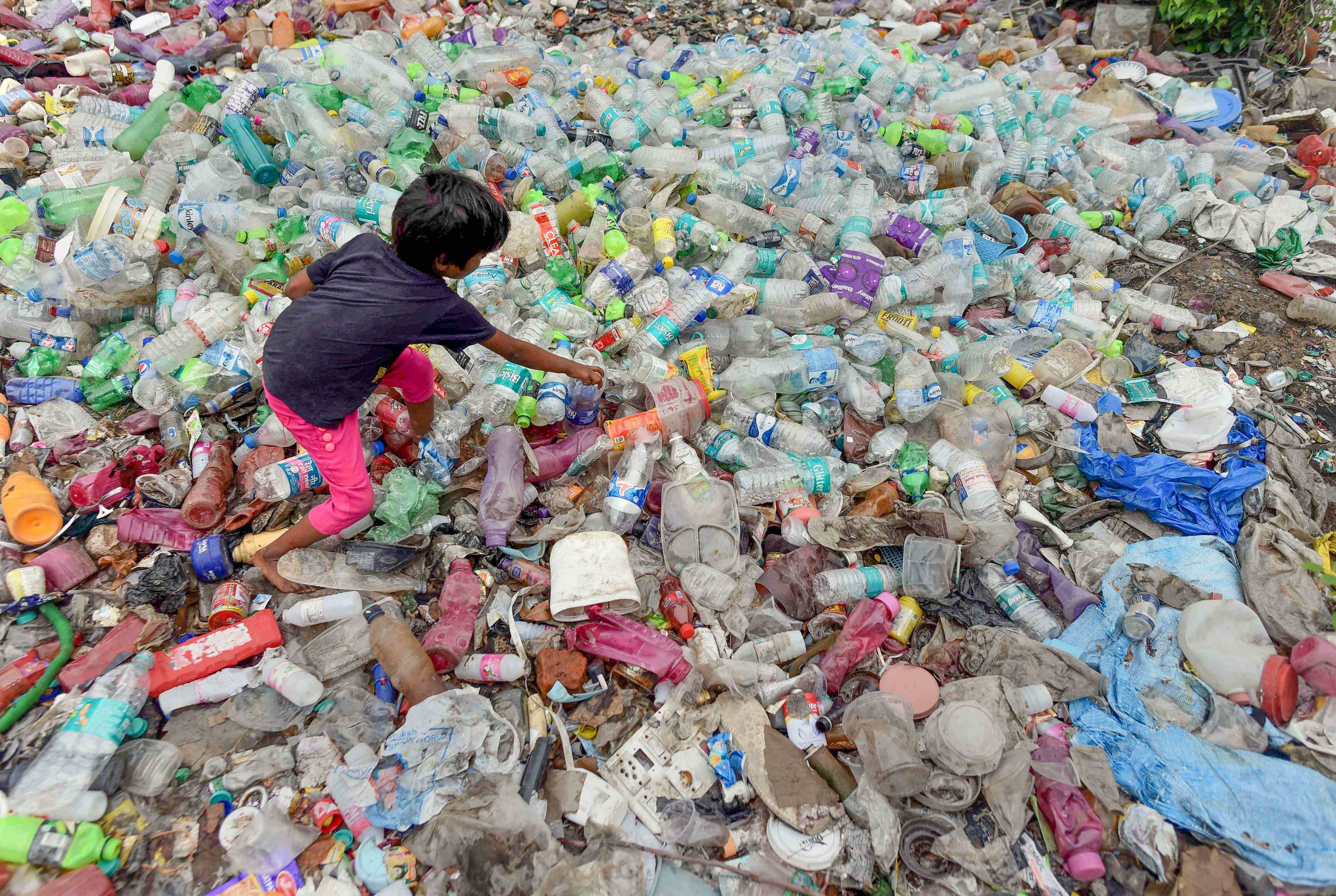Say 'no' to single-use plastic
India has implemented a ban on single-use plastic from July 1; and the move comes with hope and challenges

No major change in life comes without its set of pain and repercussions. Every time that we undertake a major shift, there is bound to be obstacles, protests, and eventually, discomfort. After years of planning, India finally implemented the ban on single-use plastic from July 1. All facilities involved in the production, distribution, sale or stocking of 21 single-use plastic items have hence been shut down. The implementation of the ban didn't come without remonstrations with many manufacturers citing lack of available alternatives. The Confederation of All India Traders (CAIT) requested a "one-year lean period" for compliance.
But this ban was many years in the coming. In the last five years, around 20 states already had some restrictions in place but implementation has been far from ideal. We have had time to prepare and alter our habits (as much as possible) to using biodegradable alternatives. Cloth and jute bags for shopping, reusable metal bottles, paper packaging, paper straws etc. have conscientiously been adopted by many businesses and individuals. But in order to eradicate the menace of the plastic waste that chokes Mother Earth, a blanket ban on single-use plastic while needed is yet to be successfully implemented.
I'm honoured to be a part of the current cohort at the Net Zero Fellowship by the School of Policy and Governance (SPG). A select group of young achievers from various walks of life (politics, administration, journalism, entrepreneurship, among others) have been sitting through deep dive sessions on challenges and goals of achieving the Net Zero target for India. In our many discussions, both online and offline, the urgency of tackling climate change has been oft reiterated. We have had freewheeling sessions on matters of importance that face India and have discussed several alarming discoveries. For example, a study in 'The Journal for Nature Conservation' states that plastic, glass, metal, rubber and other anthropogenic matter have been found in elephant's excreta in Uttarakhand. Imagine that! The need to amplify the concept of circular economy wherein waste is recycled and reused. These are ideas that require greater awareness and acceptability among the masses. A move away from plastic is crucial to meeting emission targets.
In all discussions of climate change and the need for climate action, it's hard to ignore or deny the rampant destruction of nature and its resources by mankind. We have for our myopic, greedy intentions plundered the environment. And with the ambition of growth and development, further sealed the fate of our planet and pushed tomorrow's generations into an ecologically disbalanced future. We need to stop, recalibrate, and heal; and this process has to be done with earnestness.
It's true that the plastic ban is disrupting many industries. India is one of the leading producers of plastic in the world. Our consumption of plastic is high too, about 14 million tonnes per annum, according to the World Economic Forum (WEF). The plastic industry has 2,000 exporters with more than 30,000 processing units; with a majority or 85-90 per cent of them being small and medium-sized enterprises. In a country, where unemployment levels have been dangerously high of late, the plastic sector alone provides employment to over 4 million people. While the larger companies involved in the manufacture of plastic may have used their might to evolve business offerings and practices, the smaller cogs in the chain will feel a hard pinch.
According to All India Plastics Manufacturers Association (AIPMA), there are 89,000 SMEs currently engaged in the single-use plastic industry. They provide 1 million jobs and fear that a complete ban could lead to loan defaults. According to news reports, plastic exports have upped from USD 5.08 billion in 2014-'15 to USD 9.5 billion in 2020–'21. The impressive march is predicted to touch USD 12 billion in the current fiscal. India's export of single-use plastic items has increased by 53 per cent and was valued at USD 832.15 million in 2021-'22, a huge jump from USD 542.49 million in 2020-'21. The primary customers for Indian plastic remain the US, the UK, the UAE, and Canada.
Therefore, the government has no choice but to consider measures that will help MSMEs. From sops that would help the industry pivot to production of alternatives to reduction of customs duty and staggering of the total ban as applicable to all industries — all options are on the table. While the sector requires support and rehabilitation, and changing consumer habits will aid the businesses too, the real fear remains that too much dilution of the ban could also prove to be ineffective. This is also the best time for innovation. Products that contribute to the circular economy and also smart alternatives to daily products would prove to be timely. At the end of the day, as with all things in life, we will have to strive for a balance — a balance between economy and ecology.
The writer is an author and media entrepreneur. Views expressed are personal



